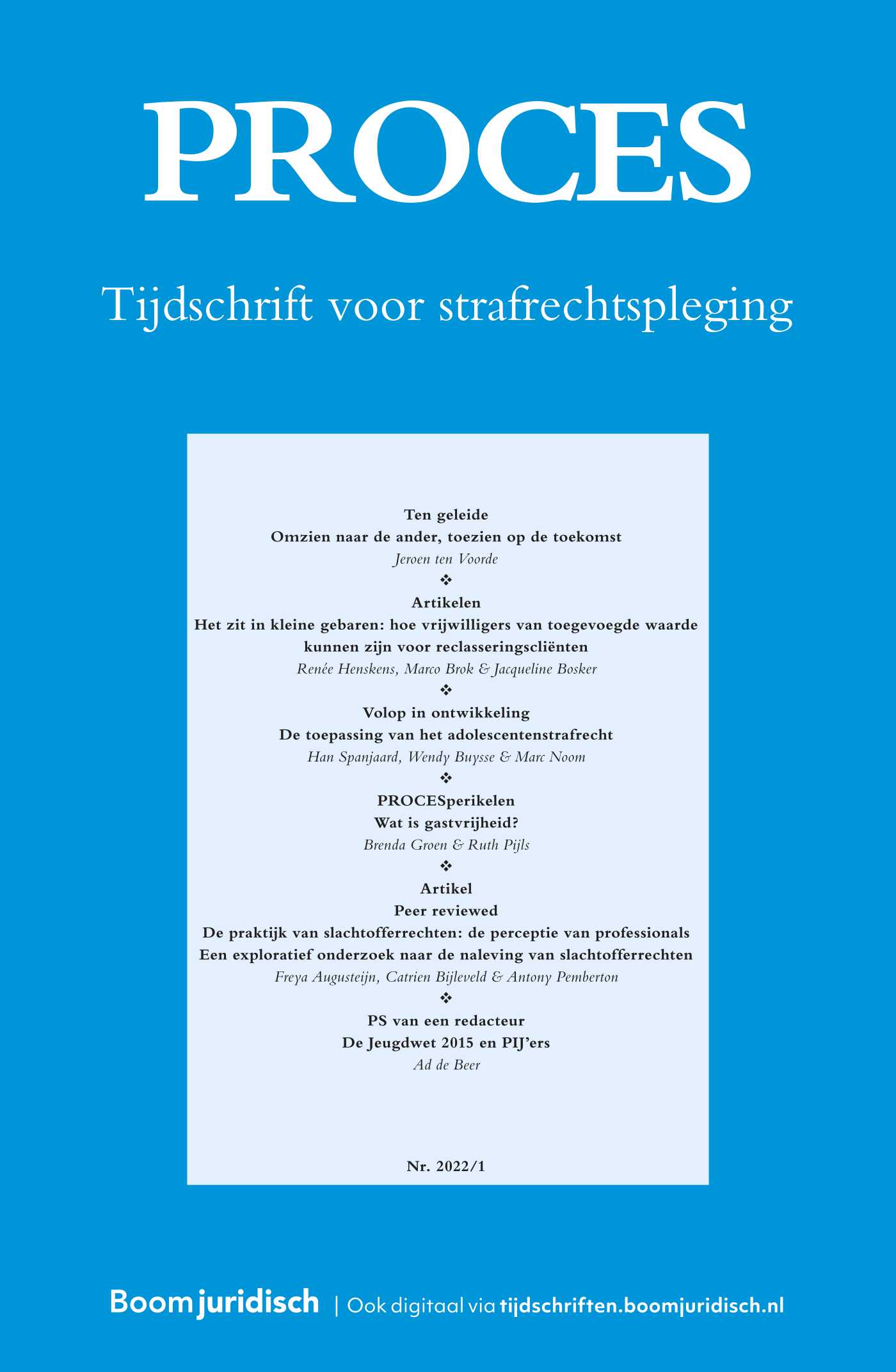|
A survey of the literature suggested that low participation rates in prison-based rehabilitation programs in The Netherlands can be explained by a lack of treatment readiness amongst rehabilitation candidates and participants. The current contribution aims to examine treatment readiness amongst detainees that have been assigned a candidate for a prison-based rehabilitation program in the Netherlands. To address these aims, data were used from the fourth wave of a research project studying the effects of imprisonment on the life of detainees in the Netherlands. Results showed that about eighty percent of treatment candidates were not treatment ready. This lack of treatment readiness amongst potential participants will no doubt influence both treatment engagement numbers, which studies have shown to be low, and quite possible treatment effectiveness. Results imply that practitioners should be aware of the absence of treatment readiness amongst a large part of their clients. Assessment and (if necessary) interventions to increase treatment readiness amongst candidates and participants seems of the utmost importance. |


PROCES
Meer op het gebied van Criminologie en veiligheid
Over dit tijdschriftMeld u zich hier aan voor de attendering op dit tijdschrift zodat u direct een mail ontvangt als er een nieuw digitaal nummer is verschenen en u de artikelen online kunt lezen.
| Redactioneel |
Over de acrobatische toeren van Teeven |
| Auteurs | Mr. Drs. Sigrid van Wingerden |
| Auteursinformatie |
| Artikel |
Behandelingsbereidheid onder gedetineerden in Nederland |
| Trefwoorden | Behandelingsbereidheid, Deelname, Rehabilitatie, Gevangenis |
| Auteurs | Anouk Bosma MSc, Dr. Anja Dirkzwager, Prof. Dr. Paul Nieuwbeerta e.a. |
| SamenvattingAuteursinformatie |
| Artikel |
Wetenschappelijke kennis over de aanpak van jeugdcriminaliteit in de transitie jeugdzorg: invalshoek of vergeethoek? |
| Trefwoorden | Transitie jeugdzorg, Jeugdcriminaliteit, Gemeenten |
| Auteurs | Dr. Bas Vogelvang |
| SamenvattingAuteursinformatie |
|
Starting in 2015, Dutch municipalities will have complete administrative responsibility for all types of youth care on the continuum of preventive child education programs to youth probation and re-entry aftercare. In the process of this so called ‘youth care transition’, the use of available and valid scientific knowledge about effective reduction of juvenile crime (distilled from What Works, desistance focused studies and forensic pedagogy) seems to be suppressed by the administrative and procedural concerns that municipalities are now facing. In this article, these concerns are discussed and some solutions are presented. |
| Artikel |
‘Wat ik ervan vind; de stem van het kind’ |
| Trefwoorden | Minderjarigen, Communicatie, Bijzondere curator, Kinderverhoor, kindgesprek |
| Auteurs | Lisanne van Heel LL.B., Majse Hofman LL.B. en Mandy Kooijman LL.B. |
| SamenvattingAuteursinformatie |
|
Recent research by the National Children’s Ombudsman shows that minors are, or at least feel, insufficiently heard in civil legal procedures such as divorce and guardianship procedures. In response, a conference about the role of minors in the often complex civil litigation was organized at the Erasmus University in Rotterdam, on the 31st of May 2013. Based on the results of this conference, this article identifies both bottlenecks and potential areas for improvement in providing minors with a voice during legal procedures. The main improvement areas include the communication process with minors, child hearings and the appointment of the guardian ad litem and awareness of his role. Specifically, more attention should be paid to the communication between legal professionals and minors. In addition, consensus should be achieved between the courts and tribunals about children’s hearings. The most crucial improvement area is to change the name ‘child hearing’ into ‘conversation with children’. This modification will reduce the associations with criminal law. |
| Praktijk |
Sam gaat niet naar school |
| Auteurs | Mr. Marjolein P.G. Rietbergen |
| Auteursinformatie |
| Artikel |
De hybride positie van de inrichtingsarts: gevangen tussen patiënt en directie |
| Trefwoorden | Inrichtingsarts, Detentie, Medische zorg, Dwangmaatregelen |
| Auteurs | Mr. Drs. Marjan Groenouwe |
| SamenvattingAuteursinformatie |
|
This article discusses the complicated position of Dutch prison doctors. They not only act as a patient’s personal doctor, but they also have to verify that a prisoner is fit to undergo punishment and they can even be asked by the authorities to carry out involuntary body searches. This can raise serious ethical concerns and cause harm to the doctor-patient relationship. I have tried to determine in what situations the duty to care for their patients conflicts with considerations of prison management. |
| Artikel |
Vluchtelingen, humanitaire hulp en conflict: de Karen National Union in Birma |
| Trefwoorden | Burma, Karen, Conflict, Refugees, Humanitarian aid |
| Auteurs | Jelmer Brouwer MSc en Dr. Joris van Wijk |
| SamenvattingAuteursinformatie |
|
In this article we describe how and why the Karen National Union (KNU) has profited from international refugee camps and humanitarian aid in Thailand after they had been largely defeated in Burma. By assuming leadership positions in the refugee and camp committees, they have been able to maintain their specific ideology in the camps. Because humanitarian aid to these refugee camps was much higher than to victims and organizations in Burma itself, international donors and NGOs have disproportionately supported the KNU. |
| Column |
Koen en het Kantongerecht Groenlo |
| Auteurs | Jeannette Bruins |
| Auteursinformatie |
